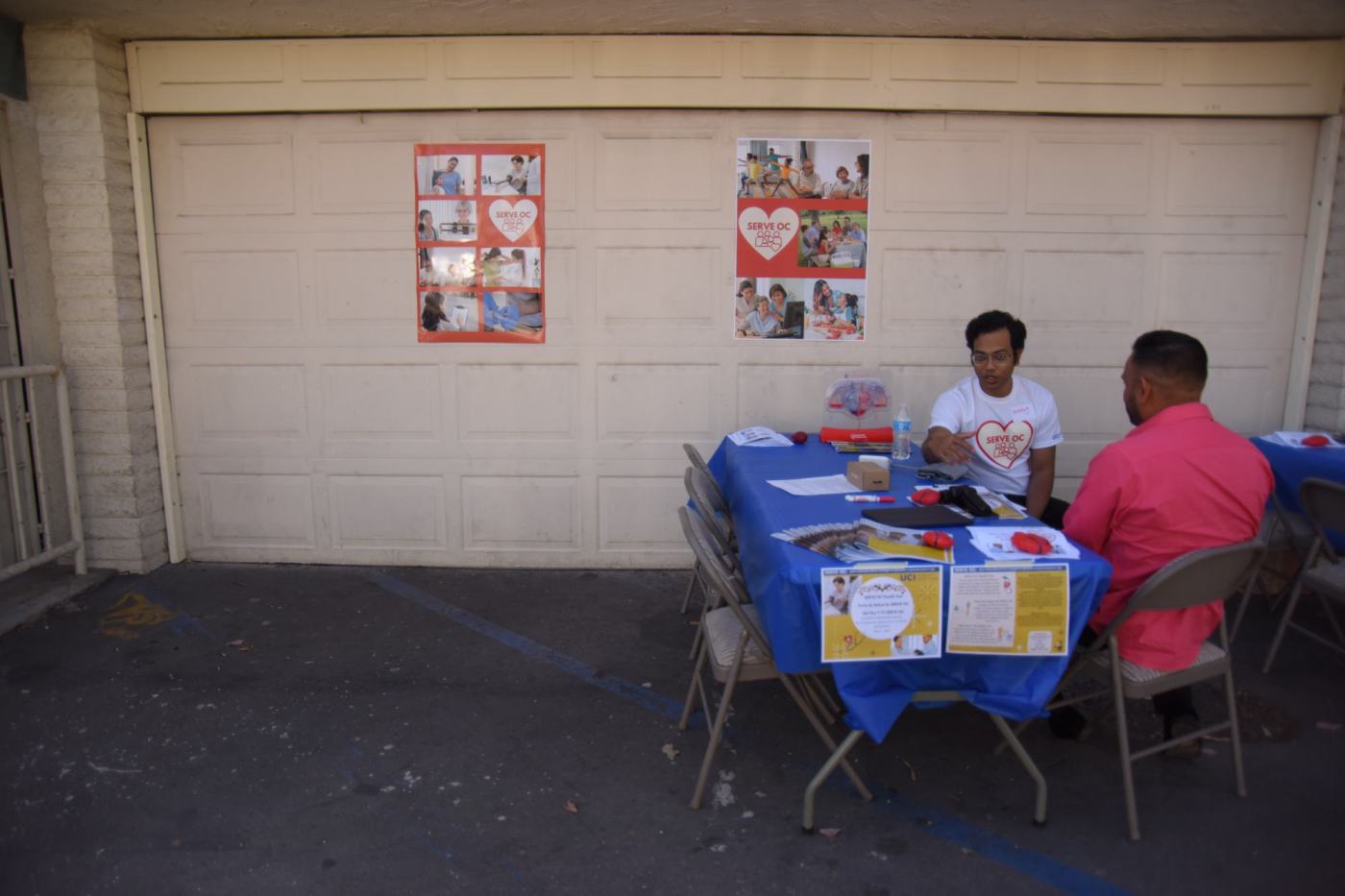Thirty years ago, Bernadette Boden-Albala set out to find out how many strokes had occurred in racial or ethnic groups.
People would say to tabulate the number of strokes in a hospital setting, Boden-Albala recalled. But, not everyone goes to the hospital. Some see a doctor and others go to a nurse.
“Early on, I realized that to understand diseases, you have to understand community context — where people are living, what their environment is and all those things that impact the way in which they experience disease,” said Boden-Albala, now the director of the UC Irvine Program in Public Health and the founding dean of the future UCI School of Population and Public Health.
The only way to really understand a disease and the risk factors for it, as an academic researcher, she said, was to go into the community, build relationships with residents and spend time with them — a “communi-versity” model.
At UCI, these are the principles she utilizes to engage with the community as she researches cardiovascular intervention with the goal of preventing hypertension or high blood pressure.
From their offices in El Centro Cultural de México in downtown Santa Ana, Boden-Albala and her research team have partnered with community health workers and volunteers to reach out to Latinx and Vietnamese families to participate in cardiovascular research dubbed Skills-based Educational strategies for Reduction of Vascular Events in Orange County.
And in addition to research, SERVE OC staff also offers residents multilingual resources on how socioeconomic conditions may impact health.
Cardiovascular disease is the leading cause of death of all adults but disproportionately affects communities of color.
According to the SERVE OC program’s website, stroke and cardiovascular disease account for one in four deaths among Latinos in the U.S., and heart disease is the second leading cause of death overall for Latinos. Locally, the Vietnamese population in Southern California has persistently high rates of hypertension linked to elevated rates of stroke, according to SERVE OC.
To understand this disparity, Boden-Albala and her team are looking at health through a social and socioeconomic lens — the neighborhoods people live in, health insurance coverage, educational attainment and income levels — and how these can cause gaps in health and wellbeing.
Bernadette Boden-Albala, Director of the UCI Program in Public Health and Founding Dean of the future UCI School of Population and Public Health (Photo courtesy of Program in Public Health / UCI)
Given that minority communities can have a deep mistrust in academia due to longstanding systemic racism, Boden-Albala said, researchers have to engage continuously with minority groups.
“The first thing we did was we got space in the community,” she said.
With a location in a predominantly Latino city like Santa Ana, the UCI research team began to establish and build a two-way relationship in late 2022. In addition to Santa Ana residents, the team has also reached out to people in Garden Grove and Westminster.
UCI partners with local organizations — like Latino Health Access, Radiate Consulting and the Vietnamese American Cancer Foundation — by setting up booths at events to speak to residents about health issues, providing free check-ups and talking about the relationship between health and the environment while recruiting them to the SERVE OC study.
And in turn, these local groups and community interactions help researchers think through potential risk factors, Boden-Albala said.
Boden-Albala gave an example of how this model works: Say people have trouble sleeping because trucks are passing by their home at night, because they are shift workers or because there are 10 people living in two rooms.
“Sleep, for example, is a huge risk factor for cardiovascular disease,” Boden-Albala said. “And if I was sitting in the ivory tower, not getting into the community, how would I know that this area has a lot of trucks, noise pollution, air pollution, congestion?”
By combining health checks with recruitment, SERVE OC has been able to attract more community members to the study “because they want to better their heart health and the heart health of their family,” said Desiree Gutierrez, a research coordinator with the UCI Program in Public Health.
To date, 217 individuals have enrolled in the research (targeting communities in Garden Grove, Santa Ana and Westminster), including children as young as 5. Since it is a family-based study, UCI is also tracking enrollment on a family level and has 85 families enrolled.
Given that the long-term goal is to reduce blood pressure to help prevent cardiovascular disease, short-term success looks like adherence to remote blood pressure monitoring, said Emily Drum, a research manager with the UCI Program in Public Health.
Each family is given a free blood pressure monitor that automatically sends their blood pressure readings to the SERVE OC research platform. Each adult is asked to take their blood pressure at least once a week, and researchers can track if they are doing so.
Drum said community health workers and UCI research staff also check in regularly with the families to see how they are doing. “We have just started rolling out the first intervention sessions, so we don’t have a lot to measure right now,” Drum said.
Related Articles
Hairy moles may provide antidote for baldness, UCI researchers find





